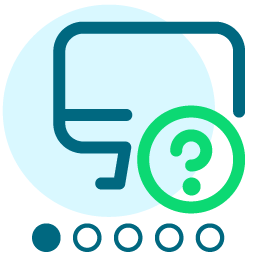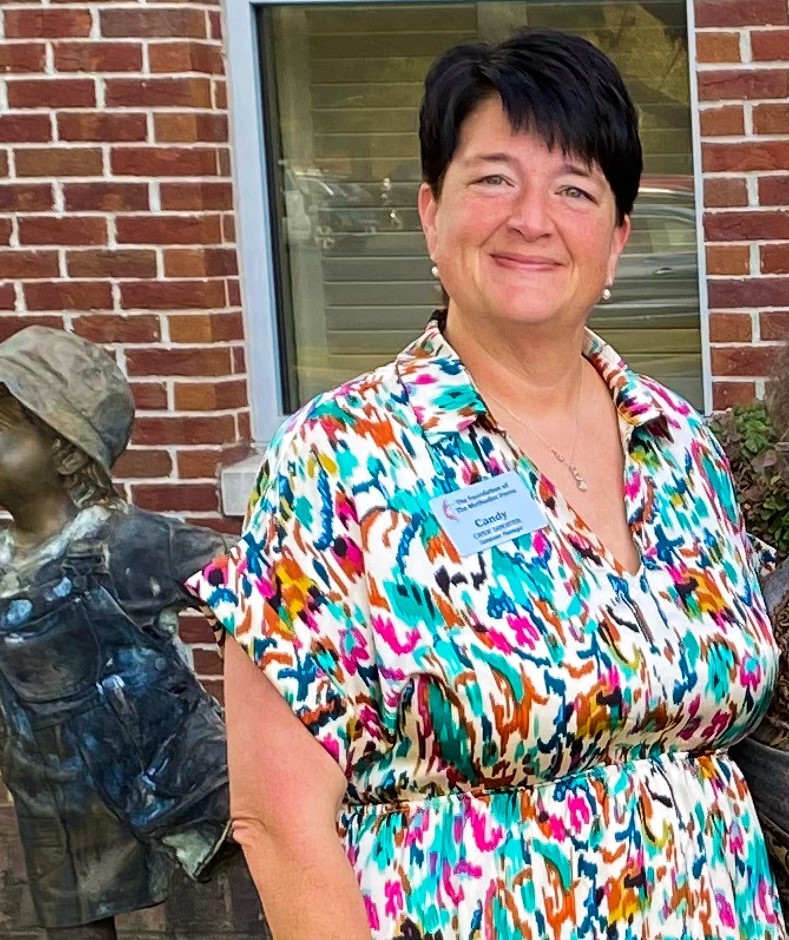What is the most difficult part of job with Raisers Edge with no prior experience?
Comments
-
I would say it takes a year to simply get used to the cycles of the office. I would recommend investing in a learn everything subscription for at least a year. They should do all the training they can during that time. If they were hired as the database manager I would say they should have their professional certification within Six months of hire. Three months would certainly be doable.
The hardest thing will be learning how your office has set things up. If your system was set up well then the learning curve will be shorter. If your system needs an overhaul then that can take years depending on your office dynamics and daily responsibilities. Is there a good procedures manual in place? If not, that should also be tackled.
I hope this helps.7 -
I agree with Elizabeth that it might take a year to get used to the cycles, and that it's important to take all the training you can. Try finding a RE user group in your area...finding other users that you can talk things through with is invaluable. I wouldn't worry about the certifications though. In the early part of any new job, you're just getting your feet wet. Certifications will come, or they won't. Either way, your value to your organization is learning and using the database in the most efficient and effective way. As far as being an expert? I've been in RE for over 10 years, and I learn something new EVERY DAY! Take a deep breath. If you are open to learning and trying new things, it'll come. Don't put so much pressure on yourself to learn everything at once!!
Good luck!
Katherine4 -
I think the biggest thing to get when starting out is time. It takes time to understand how things are laid out and organized in database view. NXT just adds to the learning curve. I think it takes about 6 months to feel comfortable with the routine stuff. It all depends on what other responsibilities the person may have. And how long it takes them to understand query concepts.
When I was starting out, I spent a week offsite taking the Blackbaud Fundamentals classes. I don't know if I suggest taking them right away like I did, but the materials and the booklet were good. I still reference them now. I don't think setting a time expectation is fair without knowing the size of the office and the roles they may have to take on. If you have a learn subscription, then sure, go for a cert. If not, don't worry about it. It's a worthwhile investment though.
It took me about 2 years to know what I was doing. It took another year after that for me to figure out that I knew what I was doing.
The hardest part to me was understanding my team. What they needed versus what they requested. Once you understand the concepts and how things relate, the rest is putting it all together.
7 -
Dariel Dixon:
I think the biggest thing to get when starting out is time. It takes time to understand how things are laid out and organized in database view. NXT just adds to the learning curve. I think it takes about 6 months to feel comfortable with the routine stuff. It all depends on what other responsibilities the person may have. And how long it takes them to understand query concepts.
When I was starting out, I spent a week offsite taking the Blackbaud Fundamentals classes. I don't know if I suggest taking them right away like I did, but the materials and the booklet were good. I still reference them now. I don't think setting a time expectation is fair without knowing the size of the office and the roles they may have to take on. If you have a learn subscription, then sure, go for a cert. If not, don't worry about it. It's a worthwhile investment though.
It took me about 2 years to know what I was doing. It took another year after that for me to figure out that I knew what I was doing.
The hardest part to me was understanding my team. What they needed versus what they requested. Once you understand the concepts and how things relate, the rest is putting it all together.
I totally agree with your answer...not that I don't agree with some of the others but yours hit home for me in many ways. I have been working where I am for almost 15 years and I wouldn't dare so I am an expert. I am not certified, which I am not sure is truly needed. I learn something new every single day.
The best part of your answer was "The hardest part to me was understanding my team. What they needed versus what they requested. Once you understand the concepts and how things relate, the rest is putting it all together." I find this to be challenging to this day. I speak a different language than those requesting different reports, queries, etc. I often have to dissect what they are truly in need of and not what or how they are asking.
1 -
Candy Sangster Often times, the role of the DB manager or report writer is one of translation. Knowing how to convert a request into something that can be searched for in query. Explaining to non-technical staff that it may not work the way you are expecting. Trying to explain that searching for a one-to-many output column will lead to duplicate records.
I'm very passionate about this last line. I do understand that it's not their fault. They don't know, and the request makes sense in the human mind, and my role to understand the database and make something that makes sense for everyone. But that takes time. And it takes a human touch. And a phone call or an email.5 -
Annette Mcelroy - As much assistance as the organization can give up front, is always an asset. I realize people learn differently, but having someone internally they can go to with questions is a great way for them to learn how the system works and how your organization uses it. Orgs can help the learning process by investing Blackbaud University/Learn Subscription for the new hire, helping them find a group of peers (locally/online - BB Community and the Facebook RE User Group are great online resources), etc. Overall, just have patience and support the new hire the best you can.
In my first year as a DBA, I had limited knowledge of how the system worked and read every user manual I could find. I reached out to other organizations that were similar to mine, and found a good mentor to help me understand the intricacies of RE and best practices for the system based on how my organization needed to use it. I joined local DBA group, and eventually stumbled upon the online forums listed above. I appreciated my org investing in a class or two via BB University for the topics I could not figure out on my own. As others have mentioned, I am still learning even in my 8th year of being a DBA.1 -
I just wanted to chime in on the "how long does it take to be knowledgeable". Many people have answered this in various ways already, but it really depends on the person too. I trained one person who got their Fundamentals certificate within three months. Another person probably wouldn't have passed it after a year. They were in the same position but just had very different abilities in this area. Neither was in charge of it at all, but they both needed to understand it incredibly well in order to do their jobs efficiently. Some people "get it" and some don't.
I have often seen people get hired or promoted who have little to no experience with RE. Management seems to think they can "have you sit with them for a few hours" or send the person to training for a few days and they'll be a rock star. I'm not griping - it is just something that management needs to understand a little better.
This is a great thread, by the way. Many key issues have been mentioned by a lot of great names that I recognize here in the community. Thanks to everyone who has chimed in!1 -
To me, it was learning what people actually meant when they said they needed something, then figuring out how to get that out of or into the system. Admittedly, I didn't spend much time doing trainings in the 5 years I've been in this position and am not certified, but the things I've discovered (and continue to) often revolve around previous people in my position coding things differently (in non-uniform ways, or not at all) or making mistakes in their entry, then determining exactly what was different (and why my numbers weren't reconciling), then developing a plan to clean/standardize coding of constituents/gifts to get what they (or I) wanted out.
Learning our organization and team's complexities and what they wanted to see regularly, then figuring out how to get that out of the system initially created huge challenges (and ate a lot of my time). Having 3 major fund/campaign changes in 5 years led me to understanding some of our shortfalls with RE and how to work around them. That in turn has led me to doing a lot of my analysis and data pulling outside RE so I don't have to reconfigure the entire system every other year to determine historical trends (and also vastly sped up my querying and reporting ability).
Working with a consultant in my 3rd year certainly helped, as did reading other people's postings on here to get ideas of things to look for and try in my own system.2
Categories
- All Categories
- Shannon parent
- shannon 2
- shannon 1
- 21 Advocacy DC Users Group
- 14 BBCRM PAG Discussions
- 89 High Education Program Advisory Group (HE PAG)
- 28 Luminate CRM DC Users Group
- 8 DC Luminate CRM Users Group
- Luminate PAG
- 5.9K Blackbaud Altru®
- 58 Blackbaud Award Management™ and Blackbaud Stewardship Management™
- 409 bbcon®
- 2.1K Blackbaud CRM™ and Blackbaud Internet Solutions™
- donorCentrics®
- 1.1K Blackbaud eTapestry®
- 2.8K Blackbaud Financial Edge NXT®
- 1.1K Blackbaud Grantmaking™
- 527 Education Management Solutions for Higher Education
- 1 JustGiving® from Blackbaud®
- 4.6K Education Management Solutions for K-12 Schools
- Blackbaud Luminate Online & Blackbaud TeamRaiser
- 16.4K Blackbaud Raiser's Edge NXT®
- 4.1K SKY Developer
- 547 ResearchPoint™
- 151 Blackbaud Tuition Management™
- 61 everydayhero
- 3 Campaign Ideas
- 58 General Discussion
- 115 Blackbaud ID
- 87 K-12 Blackbaud ID
- 6 Admin Console
- 949 Organizational Best Practices
- 353 The Tap (Just for Fun)
- 235 Blackbaud Community Feedback Forum
- 55 Admissions Event Management EAP
- 18 MobilePay Terminal + BBID Canada EAP
- 36 EAP for New Email Campaigns Experience in Blackbaud Luminate Online®
- 109 EAP for 360 Student Profile in Blackbaud Student Information System
- 41 EAP for Assessment Builder in Blackbaud Learning Management System™
- 9 Technical Preview for SKY API for Blackbaud CRM™ and Blackbaud Altru®
- 55 Community Advisory Group
- 46 Blackbaud Community Ideas
- 26 Blackbaud Community Challenges
- 7 Security Testing Forum
- 3 Blackbaud Staff Discussions
- 1 Blackbaud Partners Discussions
- 1 Blackbaud Giving Search™
- 35 EAP Student Assignment Details and Assignment Center
- 39 EAP Core - Roles and Tasks
- 59 Blackbaud Community All-Stars Discussions
- 20 Blackbaud Raiser's Edge NXT® Online Giving EAP
- Diocesan Blackbaud Raiser’s Edge NXT® User’s Group
- 2 Blackbaud Consultant’s Community
- 43 End of Term Grade Entry EAP
- 92 EAP for Query in Blackbaud Raiser's Edge NXT®
- 38 Standard Reports for Blackbaud Raiser's Edge NXT® EAP
- 12 Payments Assistant for Blackbaud Financial Edge NXT® EAP
- 6 Ask an All Star (Austen Brown)
- 8 Ask an All-Star Alex Wong (Blackbaud Raiser's Edge NXT®)
- 1 Ask an All-Star Alex Wong (Blackbaud Financial Edge NXT®)
- 6 Ask an All-Star (Christine Robertson)
- 21 Ask an Expert (Anthony Gallo)
- Blackbaud Francophone Group
- 22 Ask an Expert (David Springer)
- 4 Raiser's Edge NXT PowerUp Challenge #1 (Query)
- 6 Ask an All-Star Sunshine Reinken Watson and Carlene Johnson
- 4 Raiser's Edge NXT PowerUp Challenge: Events
- 14 Ask an All-Star (Elizabeth Johnson)
- 7 Ask an Expert (Stephen Churchill)
- 2025 ARCHIVED FORUM POSTS
- 322 ARCHIVED | Financial Edge® Tips and Tricks
- 164 ARCHIVED | Raiser's Edge® Blog
- 300 ARCHIVED | Raiser's Edge® Blog
- 441 ARCHIVED | Blackbaud Altru® Tips and Tricks
- 66 ARCHIVED | Blackbaud NetCommunity™ Blog
- 211 ARCHIVED | Blackbaud Target Analytics® Tips and Tricks
- 47 Blackbaud CRM Higher Ed Product Advisory Group (HE PAG)
- Luminate CRM DC Users Group
- 225 ARCHIVED | Blackbaud eTapestry® Tips and Tricks
- 1 Blackbaud eTapestry® Know How Blog
- 19 Blackbaud CRM Product Advisory Group (BBCRM PAG)
- 1 Blackbaud K-12 Education Solutions™ Blog
- 280 ARCHIVED | Mixed Community Announcements
- 3 ARCHIVED | Blackbaud Corporations™ & Blackbaud Foundations™ Hosting Status
- 1 npEngage
- 24 ARCHIVED | K-12 Announcements
- 15 ARCHIVED | FIMS Host*Net Hosting Status
- 23 ARCHIVED | Blackbaud Outcomes & Online Applications (IGAM) Hosting Status
- 22 ARCHIVED | Blackbaud DonorCentral Hosting Status
- 14 ARCHIVED | Blackbaud Grantmaking™ UK Hosting Status
- 117 ARCHIVED | Blackbaud CRM™ and Blackbaud Internet Solutions™ Announcements
- 50 Blackbaud NetCommunity™ Blog
- 169 ARCHIVED | Blackbaud Grantmaking™ Tips and Tricks
- Advocacy DC Users Group
- 718 Community News
- Blackbaud Altru® Hosting Status
- 104 ARCHIVED | Member Spotlight
- 145 ARCHIVED | Hosting Blog
- 149 JustGiving® from Blackbaud® Blog
- 97 ARCHIVED | bbcon® Blogs
- 19 ARCHIVED | Blackbaud Luminate CRM™ Announcements
- 161 Luminate Advocacy News
- 187 Organizational Best Practices Blog
- 67 everydayhero Blog
- 52 Blackbaud SKY® Reporting Announcements
- 17 ARCHIVED | Blackbaud SKY® Reporting for K-12 Announcements
- 3 Luminate Online Product Advisory Group (LO PAG)
- 81 ARCHIVED | JustGiving® from Blackbaud® Tips and Tricks
- 1 ARCHIVED | K-12 Conference Blog
- Blackbaud Church Management™ Announcements
- ARCHIVED | Blackbaud Award Management™ and Blackbaud Stewardship Management™ Announcements
- 1 Blackbaud Peer-to-Peer Fundraising™, Powered by JustGiving® Blogs
- 39 Tips, Tricks, and Timesavers!
- 56 Blackbaud Church Management™ Resources
- 154 Blackbaud Church Management™ Announcements
- 1 ARCHIVED | Blackbaud Church Management™ Tips and Tricks
- 11 ARCHIVED | Blackbaud Higher Education Solutions™ Announcements
- 7 ARCHIVED | Blackbaud Guided Fundraising™ Blog
- 2 Blackbaud Fundraiser Performance Management™ Blog
- 9 Foundations Events and Content
- 14 ARCHIVED | Blog Posts
- 2 ARCHIVED | Blackbaud FIMS™ Announcement and Tips
- 59 Blackbaud Partner Announcements
- 10 ARCHIVED | Blackbaud Impact Edge™ EAP Blogs
- 1 Community Help Blogs
- Diocesan Blackbaud Raiser’s Edge NXT® Users' Group
- Blackbaud Consultant’s Community
- Blackbaud Francophone Group
- 1 BLOG ARCHIVE CATEGORY
- Blackbaud Community™ Discussions
- 8.3K Blackbaud Luminate Online® & Blackbaud TeamRaiser® Discussions
- 5.7K Jobs Board




 Community All-Star
Community All-Star




